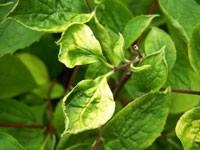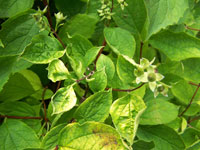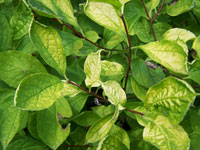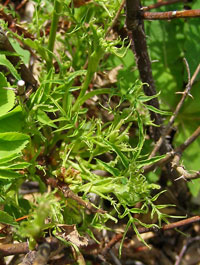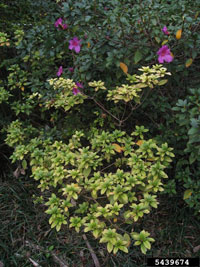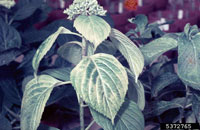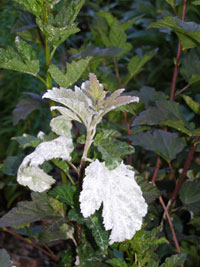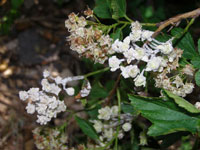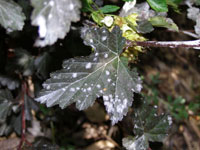Extension > Garden > Diagnose a problem > What's wrong with my plant? > Deciduous > Ninebark > Curled, cupped, or distorted leaves
Ninebark > Leaves > Curled, cupped, or distorted leaves
1 of 3
Plant growth regulator herbicide injury
(2,4-D, Dicamba, etc.)
- Leaves, stems, and petioles are twisted, distorted, and/or cupped
- Leaves may appear thick and leathery with parallel veins
- Youngest tissue at branch ends affected
- Distorted growth accompanied by or followed by leaves that turn brown or yellow
- More information on plant growth regulator herbicide injury
2 of 3
Non-selective herbicide injury
(Round-up, Kleen-up, and other glyphosate products)
- Yellowing, wilting, browning leaves and eventual death of foliage and plants
- Damage usually appears first in new tissues
- Shrubs sprayed during the summer or fall may not have noticeable injury until the following season when leaves appear as stunted, narrow, strap-like, and chlorotic
3 of 3
Powdery mildew
Erisyphe polygoni
- White spots or blotches on leaves
- In severe cases leaves and young shoots may be completely covered with white powdery fungal growth
- Leaves may be stunted, curled or puckered
- Red or purple blotches may occur on upper leaf surfaces
- More information on powdery mildew



